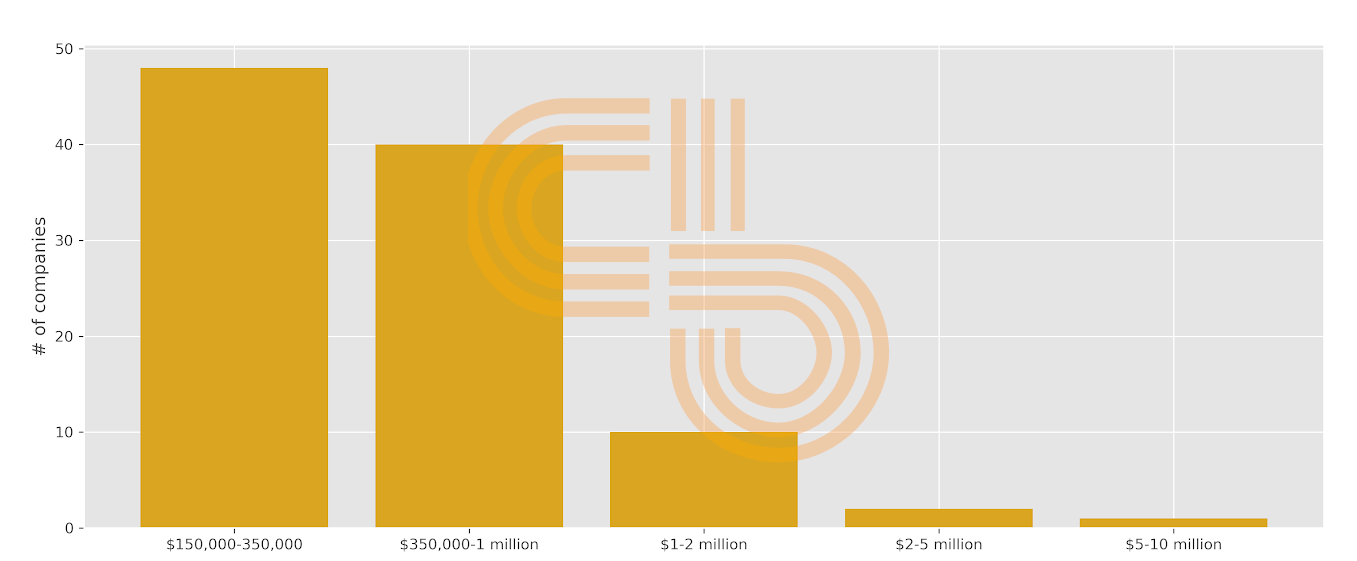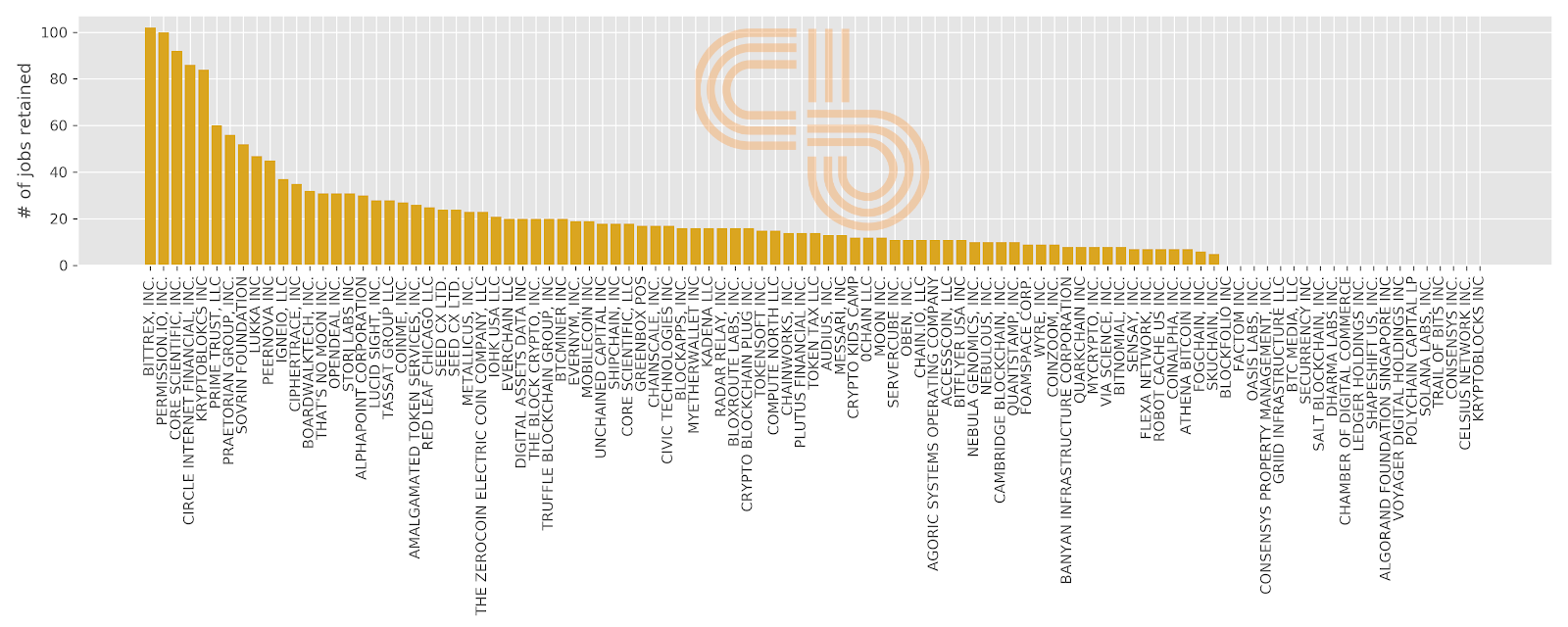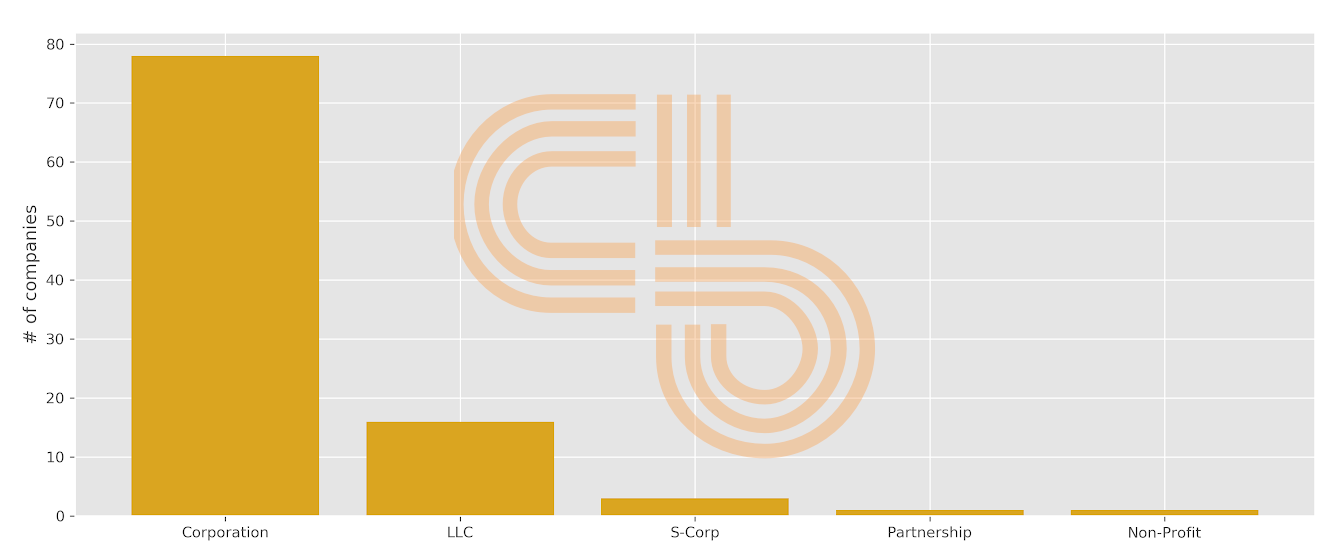
Shutterstock cover by Azer Merz
Over 100 Crypto Companies Got US Government PPP Handouts
Blockchain-related companies got millions of dollars from the U.S. government to keep their operations afloat. A dive into loan-level data provides unique insight into the crypto industry.
Loan-level data for the PPP recently published by the Small Business Administration attracted a lot of attention; the data provides insight into the real size of some of the largest companies in crypto.
Free PPP Money for ConsenSys, and Everyone Else
The way PPP loans are calculated can provide clues into the structure of particular blockchain companies. Without going into too many details, the maximum loan amount is calculated by taking a company’s monthly average wages for U.S. workers and multiplying them by 2.5.
The larget factor for a firm is their payroll expense. Hence, information about a big loan can reveal the approximate number of employees a crypto company has and provide an estimate of their burn rate.
The data the SBA provided does not reveal exact loan amounts. Instead, companies are divided into five brackets. The chart below illustrates how many blockchain companies from the identified 100 fall into each category.

Something to note is that the average payroll calculation caps each employee’s annual salary at $100,000. In general, only companies with more employees will be eligible for larger loans rather than ones with well-compensated employees.
In the observed sample, the only firm that fell into the largest loan bracket for $5-10 million is ConsenSys, even after the Ethereum-focused software company went through multiple rounds of downsizing. As recently as February 2020, ConsenSys announced it was restructuring and downsizing its labor force once again.
Getting the highest possible PPP amount would mean that its total expenses in 2019 would be at least $48 million.
Unsurprisingly, almost 90% of crypto companies fell into the bottom loan brackets; the blockchain space is still nascent and predominantly populated by startups with small teams. At a minimum, the entire crypto industry received $42 million in forgivable loans.
PPP Helping Retain Employees Despite COVID?
The PPP program’s major goal is to prevent mass layoffs. The number of employees retained plays an important role both at the borrowing and the forgiveness stages of the loan.
Nevertheless, for a substantial number of observed firms, the data on employee retainment is unavailable. For instance, ConsenSys that got the largest loan announced it would retain ‘0’ employees, which negatively affects the transparency of the program.
The median for kept employees is 14. The low retention rate with a handful of outliers keeping over 80 employees doesn’t point to mass layoffs. The majority of companies that applied are small businesses in the first place, which means that they may have kept 100% of their staff anyway.
Among the companies with a high retention rate are Bittrex and Circle. Both have run for several years and have established operations, which explains their sizes.

Government Is Bad (Until There’s Money Involved)
While the cryptocurrency space is powered by libertarian spirit, enormous profits and unique business opportunities mean it is unlike any other industry. Hence, crypto companies gladly took the government aid to strengthen their positions despite criticism from more anti-government members of the community.
In the observed selection, only a single entity, the Chamber of Digital Commerce, is a non-profit organization. The vast majority of companies are registered as corporations, showcasing how profit-oriented the blockchain space is.

Hang on for Dear Life
As the global economy continues to struggle, the U.S. government extended the PPP program until August 8, 2020. The extension is good news for both blockchain companies and their employees.
While crypto proponents dream about creating an economy independent from the traditional systems, reality tells a different story. Blockchain companies are businesses that have to survive and take care of their employees. Ultimately, the industry still largely depends on the centralized powers it despises.
